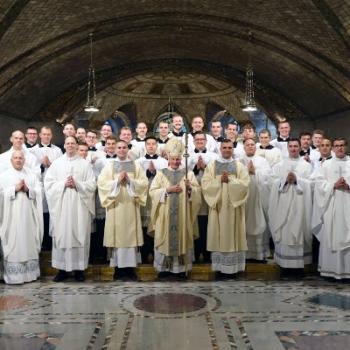Liberation theology was a new kind of theology that started developing within Christianity in the 1960’s[1]. Gustavo Gutierrez, who is known as the father of liberation theology, was a priest in Peru. Over the course of his ministry he saw the oppression that the poor experienced and developed a heart for them. In the introduction of his book, titled A Theology of Liberation, Gutierrez describes the purpose of the book. It is to reconsider the practice of the church among those who are oppressed and exploited[2].

Liberation and Theology
Gutierrez begins his book by reflecting on what theology is. He discusses theology as wisdom and theology as knowledge, and he does so by referencing classic works by Thomas Kempis, Thomas Aquinas, and Abelard. He also goes through some if the historic church councils, such as Vatican I and II to discuss that theology is less about knowledge and but action in our lives. Gutierrez saw this and challenged the status quo of the church in regard to evangelization[3]. Therefore, theology is not only about communion, but service to others[4].
Gutierrez then proceeds to the concept of development, but he does so in comparison to underdevelopment. As one can ascertain, development is in relation to rich countries while underdevelopment represents poor countries[5][6]. Economics should have a circular flow, but this is not the case in reality. In reality the riches go to a few while everyone else is in economic oppression. Liberation is all about understanding human history and the ability of man to take responsibility for its own destiny[7].

Liberation and Salvation
This summary will move to chapter nine which is titled Liberation and Salvation. Christ came to save man and it is the same message that was preached by Paul in his letters, but part of that salvation is the development of a just society[8]. Gutierrez, in bringing political liberation in the sphere of salvation, turns to the accounts of the Exodus. The people of Israel were slaves in Egypt and they were not freed just to worship Yahweh. They were freed from the status of slaves and were on their way to the land that the Lord had promised Abraham. This was the beginning of the construction of a just society[9].
The conclusion of the book lays out the points of Gutierrez in a succinct way. There needs to be a commitment to rid the world of injustice and build a just society[10]. People need to stop being exploited and the dignity of human life must be recognized for what it is. Theology of liberation can only happen when those who are exploited feel they can get their voices heard in society, and within the church.
Book Analysis
The plight of the exploited people in the world is real and needs to be brought to light. I applaud Gustavo Gutierrez for his effort to do so. He is writing in the context of what he saw and lived in Latin America in the 1960’s and 70’s, and many of the struggles that were happening then and still going strong. I do think some good points were made, but there are also some concerns. When discussing Salvation, Gutierrez says that part of salvation is liberation from political and socioeconomic evils and not just from sin. He then states that part of salvation is building a just society. The building of a just society comes from being saved and the bondage of sin broken. When a person experiences freedom in Christ treating others how Christ has treated us should flow. This does not mean that exploitation and political injustice will cease. History has proven this time and again. The early church is a good example if this.
Furthermore, Gutierrez went so far as to say that the philosophy of Karl Marx was not incompatible with the Christian ideal. This was particularly interesting since Karl Marx was an atheist who had a mission to annihilate all religions and had a great disdain for Christianity[11]. It is understood that Gutierrez was referring to views on capitalism, but one view of a person cannot be isolated from another especially when it is said that it is compatible with Christianity. Marx did not feel that way so it is illogical for one to see Marx seeing it as compatible. Socialism is not the answer to injustice and has been shown to create even more inequality among the exploited.

Another aspect of the book that was interesting was the idea of Jesus as a political figure. One can see how the argument can be made, but is Jesus the savior of the world or a political activist? There is no doubt that Jesus cared for the downtrodden and all Christians are called to do the same. Liberation from social and economic issues is not salvation and not the Gospel. Calling out oppressors must and should happen, but that must not be confused with what the Gospel is.
Bibliography
Del Villar Tagle. “The European Roots of A Theology of Liberation: Gustavo Gutiérrez and the Nouvelle Théologie.” International journal of Latin American religions 6, no. 1 (2022): 29–44.
Dimitriadis, Vasilios. “Gustavo Gutiérrez: Liberation Theology for a World of Social Justice and Just Peace.” Journal of ecumenical studies 54, no. 3 (2019): 431–41.
Gutierrez, G. A Theology of Liberation. N.p.: Catholic Foreign Mission Society of America, and 2013., 1971.
Lobkowicz, N. “Karl Marx’s Attitude Toward Religion.” The Review of Politics. Cambridge University Press, 26(3) (August 2009): 319–52.
[1]. Del Villar Tagle, “The European Roots of A Theology of Liberation: Gustavo Gutiérrez and the Nouvelle Théologie,” International journal of Latin American religions 6, no. 1 (2022).
[2]. G. Gutierrez, A Theology of Liberation (n.p.: Catholic Foreign Mission Society of America, and 2013., 1971), xvi.
[3]. Vasilios Dimitriadis, “Gustavo Gutiérrez: Liberation Theology for a World of Social Justice and Just Peace,” Journal of ecumenical studies 54, no. 3 (2019).
[4]. Gutierrez, A Theology of Liberation.
[5]. Ibid.
[6]. Ibid.
[7]. Ibid.
[8]. Ibid.
[9]. Ibid.
[10]. Ibid.
[11]. N. Lobkowicz, “Karl Marx’s Attitude Toward Religion,” The Review of Politics. Cambridge University Press, 26(3) (August 2009).













